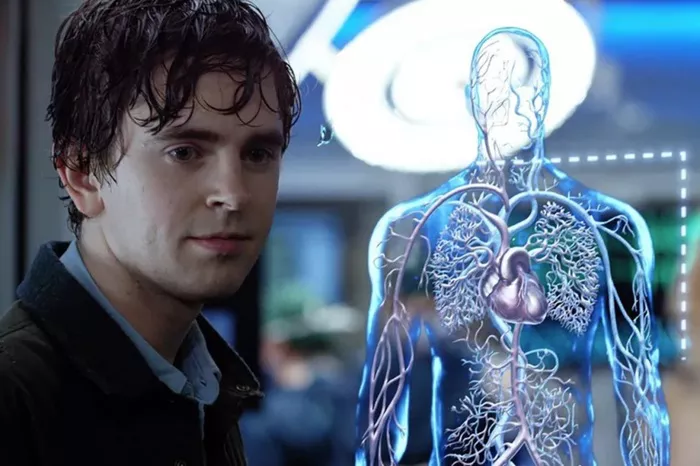Television has long been a medium for exploring complex characters and diverse stories. “The Good Doctor,” a medical drama that premiered in 2017, has garnered significant attention for its portrayal of autism through the character Dr. Shaun Murphy. Portrayed by Freddie Highmore, Dr. Murphy is a young surgical resident with autism and savant syndrome. This portrayal has sparked discussions about representation, authenticity, and the responsibilities of actors and creators in depicting neurodiverse characters.
The Character of Dr. Shaun Murphy
Creation and Development
David Shore, the creator of “The Good Doctor,” is also known for creating the critically acclaimed medical drama “House.” Shore was inspired to create a show that would highlight the capabilities and challenges faced by individuals with autism. Dr. Shaun Murphy’s character was crafted with the intention of breaking stereotypes and providing a nuanced representation of autism.
Autism and Savant Syndrome
Dr. Murphy’s character is not only autistic but also has savant syndrome, a condition where an individual exhibits extraordinary abilities in a specific area, such as mathematics or memory. This combination adds layers to the character, showcasing both the struggles and exceptional talents of individuals with these conditions.
Plot and Character Arc
Throughout the series, Dr. Murphy navigates the high-pressure environment of a surgical residency while dealing with social challenges and prejudices. His journey includes professional growth, personal relationships, and the ongoing struggle for acceptance and understanding within the medical community.
Freddie Highmore’s Portrayal
Background and Preparation
Freddie Highmore, a British actor known for his roles in “Bates Motel” and “Finding Neverland,” was cast as Dr. Shaun Murphy. Highmore, who is not autistic, undertook extensive research to prepare for the role. This included consulting with autism specialists, reading books, and observing the behavior and experiences of individuals on the autism spectrum.
Performance Elements
Highmore’s performance is characterized by meticulous attention to detail. He adopts specific speech patterns, body language, and facial expressions to convey Dr. Murphy’s autism. His portrayal has been praised for its sensitivity and depth, capturing both the challenges and strengths of the character.
Reception and Critique
Highmore’s portrayal has received mixed responses from the autism community and critics. While some praise his performance for raising awareness and fostering empathy, others argue that casting a non-autistic actor in the role perpetuates a lack of authentic representation in media.
Representation of Autism in Media
Historical Context
Autism has historically been underrepresented or misrepresented in media. Early portrayals often relied on stereotypes, depicting autistic individuals as either savants or socially inept individuals. These portrayals failed to capture the diversity and complexity of the autism spectrum.
The Importance of Authentic Representation
Authentic representation is crucial for fostering understanding and empathy. Accurate depictions of autism can challenge misconceptions and provide a platform for autistic voices. This includes not only characters but also involving autistic actors, writers, and consultants in the creative process.
Other Notable Portrayals
In recent years, there has been a shift towards more accurate and diverse portrayals of autism in media. Shows like “Atypical” and films like “The Accountant” have contributed to this trend, though debates about authenticity and representation continue.
See also: How Many Episodes In Season 6 Of The Good Doctor?
The Debate on Casting Choices
Arguments for Authentic Casting
Advocates for authentic casting argue that autistic actors should be given the opportunity to portray autistic characters. This not only provides employment opportunities but also ensures a more genuine depiction of the character’s experiences and behaviors.
Challenges and Counterarguments
However, casting decisions are complex and multifaceted. Producers and directors may prioritize factors such as star power, acting ability, and the overall vision for the character. Some argue that talented actors, regardless of their neurotype, can effectively portray a wide range of characters with proper research and sensitivity.
The Impact of “The Good Doctor”
Raising Awareness
“The Good Doctor” has undoubtedly raised awareness about autism and savant syndrome. The show’s popularity has sparked conversations about neurodiversity and the challenges faced by autistic individuals in professional settings.
Influence on Public Perception
Television has the power to shape public perception. Dr. Shaun Murphy’s character challenges stereotypes and highlights the capabilities of autistic individuals. By portraying an autistic surgeon, the show encourages viewers to reconsider their assumptions and biases.
Contributions to the Autism Community
While the show’s impact on the autism community is mixed, it has provided a platform for discussion and advocacy. Organizations and advocates have used the show’s popularity to promote greater understanding and support for autistic individuals.
The Role of Actors and Creators
Ethical Considerations
Actors and creators have a responsibility to portray neurodiverse characters with accuracy and respect. This includes conducting thorough research, consulting with experts, and involving the community being represented.
Balancing Artistic Freedom and Authenticity
Balancing artistic freedom with the need for authenticity is a delicate task. While creative expression is important, it should not come at the expense of accurate representation. Striking this balance requires collaboration and a commitment to inclusivity.
Conclusion
Freddie Highmore’s portrayal of Dr. Shaun Murphy in “The Good Doctor” has brought autism into the mainstream spotlight. While Highmore is not autistic, his performance has been lauded for its sensitivity and depth. The show has sparked important conversations about representation, authenticity, and the responsibilities of actors and creators in depicting neurodiverse characters. As the media landscape evolves, it is crucial to continue advocating for authentic representation, ensuring that diverse voices are heard and respected.
Related topic:
Which Korean Show Is The Good Doctor Based On? [Revealed]
When Will The Good Doctor Season 6 Be on Netflix?
Where To Watch “The Good Doctor” Free?

